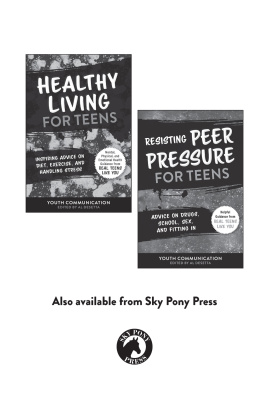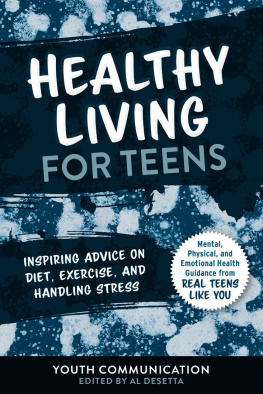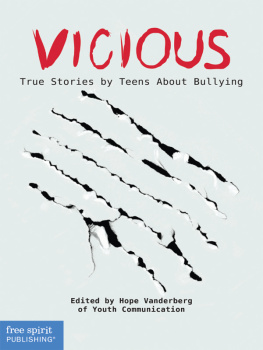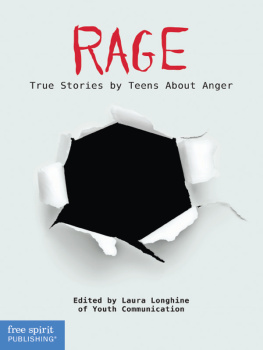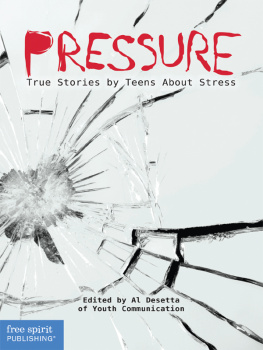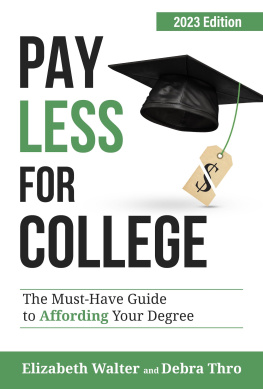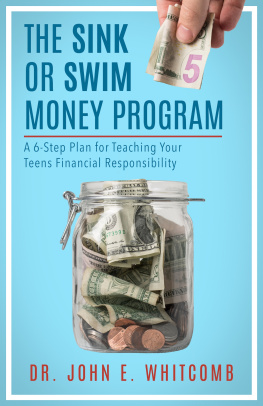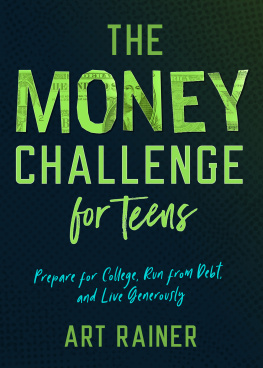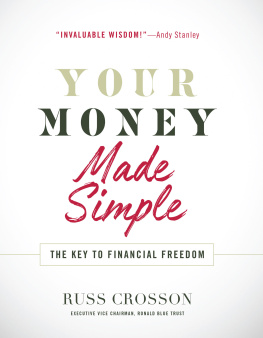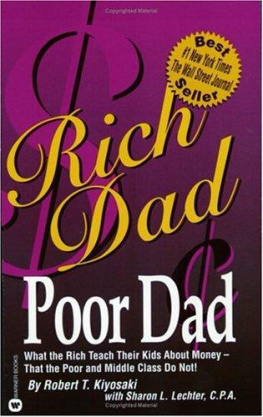


This arrangement copyright 2022 by Youth Communication
Originally published as Money Matters in 2014 by Youth Communication. Additional stories appeared in Represent.
All rights reserved. No part of this book may be reproduced in any manner without the express written consent of the publisher, except in the case of brief excerpts in critical reviews or articles. All inquiries should be addressed to Sky Pony Press, 307 West 36th Street, 11th Floor, New York, NY 10018.
Sky Pony Press books may be purchased in bulk at special discounts for sales promotion, corporate gifts, fund-raising, or educational purposes. Special editions can also be created to specifications. For details, contact the Special Sales Department, Sky Pony Press, 307 West 36th Street, 11th Floor, New York, NY 10018 or .
Sky Pony is a registered trademark of Skyhorse Publishing, Inc., a Delaware corporation.
Visit our website at www.skyponypress.com.
10 9 8 7 6 5 4 3 2 1
Library of Congress Cataloging-in-Publication Data is available on file.
Executive editor: Keith Hefner
Contributing editors: Rachel Blustain, Sasha Chavkin, Al Desetta, Sheila Feeney, Marie Glancy, Katia Hetter, Kendra Hurley, Philip Kay, Nora McCarthy, Tamar Rothenberg, Autumn Spanne, Maria Luisa Tucker, Hope Vanderberg, and Virginia Vitzthum
Cover design by Daniel Brount
Print ISBN: 978-1-5107-5992-3
Ebook ISBN: 978-1-5107-5993-0
Printed in the United States of America
INTRODUCTION
To teenagers, money matters. As you leave childhood behind, the ability to get and spend your own money marks your growing independence. Knowing you can buy something you want is exciting and liberating. Having some money for the first time is also a chance to mess up and learn the consequences of bad spending decisions.
Getting older means discovering more of how the adult world worksor doesnt. The gap between the richest and the poorest Americans has been growing for decades, and experts predict it will continue to grow unless politicians vote for policies like higher taxes for the rich and greater benefits for the rest of us. Young people bear the brunt of this inequality because it makes it harder to get a job and to pay for the college education you need to move up the ladder. If your parents can support you, you may not need to worry about money yet, but you will soon.
In this book, teens write about their problems handling money wisely, the lessons theyve learned from managing their own income, clever ways theyve found to earn and save, and their growing awareness of how our larger economic system determines their relationship to money. Many of the teens who wrote the stories in this book are in foster care or live in lower- income neighborhoods, and they write about the hard transition to economic self-sufficiency.
Xavier Reyes wasnt even living on his own yet when he found himself trying to climb out of a deep hole of credit card debt, from which it took him years to escape. The smartest first step to taking real control of your money is to start a bank account, as Jarel Melendez and Chantal Hylton do. But Chantal points out there are fees to beware of here, too: A bank account is only a good thing if you know how to use it.
Several stories deal with teens concerns about how to become financially independent. Giselle John is on a mission to save $7,000 before she turns 21 and ages out of foster care. Asia Fillmore learns not to keep bankrolling friends who never pay her back. (Asias story also gives teachers an opportunity to teach colloquial as opposed to formal writing.) Whether youre trying to leave home or just want to have more money in your pocket, thrift is something most young adults will have to learn. Anita Ames writes about overcoming her prejudice against second-hand clothes. Chimore Mack turns her beloved dog into a source of income by breeding her and selling the puppies.
Yet sometimes solutions are harder to find. Shaniqua Sockwell writes of repeated frustrations in her search for a retail job. Jianxin Shi and Danielle Chambers share their experiences getting scammed by commission-only jobs that really were too good to be true. Since tuition bills loom large on a college-bound teens financial horizon, Maria Alashola and Marci Bayer report on how to approach them, along with other college costs.
Expensive as it may be, college is important because it gives teens a better opportunity to achieve true and lasting financial independence. Marco Salazar describes his fathers decades of struggle as an immigrant, and attributes much of that struggle to his lack of English skills or a college degree that is valid in the
U.S. Marcos dad expects his son to receive an education and live the American dream he couldnt have.
After years of feeling engulfed in shame over her familys reliance on welfare, Diana Moreno makes peace with it as the support that will enable her to build a better life for herself. And when Hattie Rice is moved from her parents rat-infested apartment to a foster care placement in a nice neighborhood, her grades climb because she sees and comprehends what she can achieve. Im sure that if I stay focused and succeed in school, she writes, I can make it out of the ghetto.
Taken together, the stories in this book will help teens understand their own attitudes and assumptions about money as they prepare to become financially independent. The issues teen writers raise here can pave the way for a discussion about responsibility, values, and the way our individual spending choices fit into larger economic questions.
Names and some details have been changed in these stories:
On My Own: An Aging Out Story, A Bad Deal,
How I Learned to Be Stingy, I Took a Scam Job, and
I Want an Equal Relationship, In older stories, dollar amounts have been adjusted for inflation or updated.
PART ONE
MONEY AND SOCIETY
DONT FOLLOW THE LEADER
By Anonymous
Looking out the windows of the #3 subway train, I spot a familiar sign: Rockaway Ave. The doors open and I enter my world, my home: Brownsville, Brooklyn, one of the poorest neighborhoods in New York City.
Slowly I walk down the stairs, then push my way through the turnstile. As I step outside, Im greeted with the smell of weed, and the sound of Newport, come get your Newport right here echoing through the street. Eyes gaze as I walk by. I walk fast. Im sick of seeing those same fools drug dealing to the vulnerable or hustling on the corner.
Look straight, look ahead, and surpass the negativity. Dont get sucked up in their dimension. Keep a positive mindset, dont be one of them. Dont notice a thing.
Even after so many years, my trip home still aggravates me. Its disturbing to see the black community in this state. The thieves and drug dealers hurt each other and our neighborhood to become so-called successful. Their pride comes in knowing that they put a loaf of bread on the table. Tell me this, though: How do you feel knowing what you had to do to get it?
African Americans have gone through so much to gain our so-called equal rights. So why are so many of us living in run-down apartments, cooped up in projects, depending on welfare, stashed up in prison and stuck in segregated communities like Brownsville?

